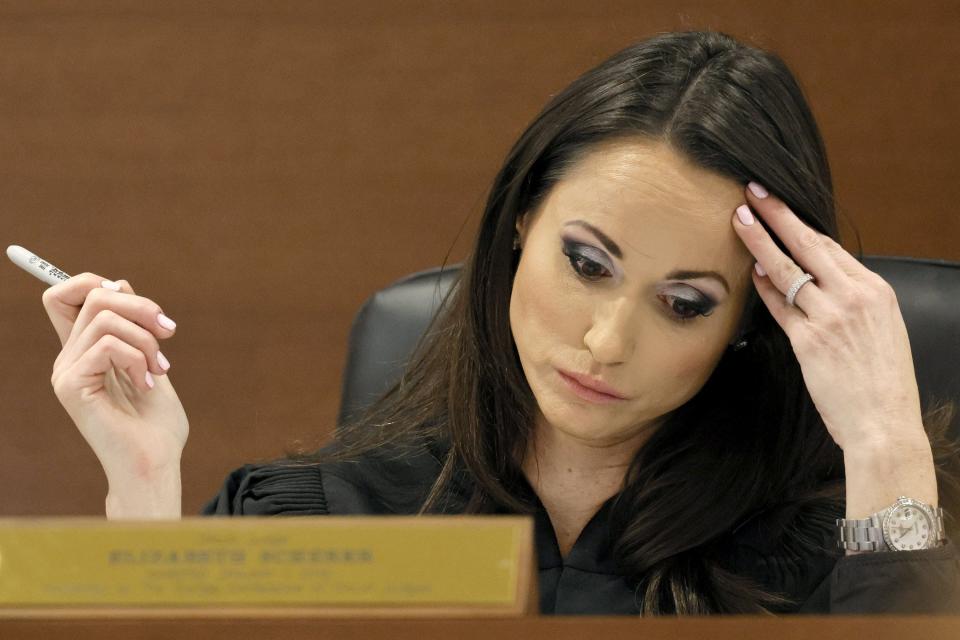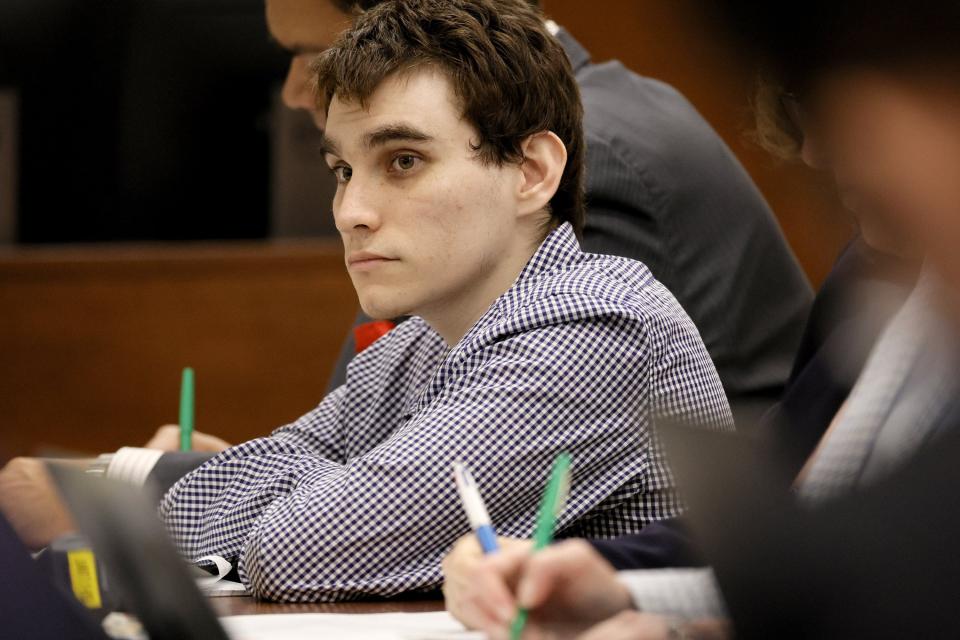Judge's misstep causes restart to jury selection in Nikolas Cruz death penalty case
FORT LAUDERDALE — Two weeks after it began, jury selection in the death penalty trial of confessed school shooter Nikolas Cruz started again Monday morning inside a Broward County courtroom.
A procedural error caused Circuit Judge Elizabeth Scherer to dismiss 200 jurors and nullified two weeks of work toward selecting 12 jurors and eight alternates, leading to the latest delay in the case.
Scherer said Monday the trial won't begin any earlier than June 21. Last week, Scherer said she expected it to commence June 13 after originally setting a start date of May 31.
Cruz, 23, plead guilty in October to 17 counts of first-degree murder and 17 counts of attempted first-degree murder in the Valentine's Day 2018 mass shooting at Marjory Stoneman Douglas in Parkland.

Elizabeth Scherer in the spotlight: Judge overseeing Nikolas Cruz death penalty trial sheds anonymity for national spotlight
The court's question: Should Nikolas Cruz live or die? Court to sentence Parkland gunman who confessed to killing 17
Campus tour in store: Judge rules Nikolas Cruz jurors can tour Stoneman Douglas building where gunman killed 17
The jury that is eventually selected will be tasked with deciding whether Cruz, who briefly lived near Lantana prior to the shootings, is executed or spends the rest of his life in prison.
But the process getting there has been slow, with the latest delay coming Monday after prosecutor Carolyn McCann filed a motion asking that jury selection start over because Scherer, on April 5, prematurely dismissed 11 potential jurors who said they would not follow the law. Defense attorneys and prosecutors both argued they should have been able to question those dismissed before they were released.
The 11 jurors were supposed to return for further questioning Monday but did not do so because of "miscommunication," Scherer said.
The judge said those jurors could return next week, but McCann pushed for a restart to jury selection.
Scrapping two weeks of work is something the Broward County State Attorney's Office "does not take lightly," McCann told the court, but "error has now embedded in these proceedings."
"There's too many issues," McCann said. "At this point, it's better just to start fresh."
Melisa McNeill, Cruz’s lead public defender, spoke against starting from scratch, saying it was "premature" and adding the defense needed more time to mount a proper argument against the order. McNeill said the judge would be "committing more error" by discharging the jurors.
Scherer, employed for 11 years as a prosecutor in the State Attorney's Office before becoming a judge, announced after a lunch recess that she was siding with the prosecution. She said defense attorneys had until Wednesday to conduct research and sway her opinion.

During a back-and-forth discussion with McNeill, Scherer disputed the claim she made a mistake by not requiring the 11 jurors to return Monday.
'I don't believe it's an error," Scherer said. "You all do. … Let's just get a jury."
The issue regarding the 11 jurors arose April 5 when Scherer asked a panel of 60 candidates if they could follow the law. Prior to that, the judge had only asked potential jurors if they had met Cruz or any of the attorneys working the case and whether serving through September would create a financial hardship.
Eleven jurors told Scherer they could not follow the law and were dismissed without further questioning. Both sides objected to the judge's decision, claiming the right to interview candidates and raising the possibility of a mistrial.
Scherer attempted to reverse course by asking deputies to regather the 11 prospective jurors, but nearly all of them had left the courthouse. The judge then ordered the Broward County Sheriff's Office to deliver summonses to the jurors requiring them to report to the courthouse Monday, but that was not done for reasons that were not made clear.
Even if the jurors were to return, it's likely they would be disqualified because none were ordered by Scherer not to discuss the case.
The decision means that the estimated 200 jurors who said they could serve and were expected back this month for further questioning will not be back. More than 1,200 people have been screened.
The capital case is Scherer's first since she was appointed to the bench by Gov. Rick Scott in 2012.
For Cruz to be executed, the dozen jurors who are eventually selected must all agree on death. That recommendation would then go to Scherer, who makes the final decision. If any of the 12 jurors dissents, Cruz would receive 17 life sentences and live out his days in prison without the chance of parole.
jmilian@pbpost.com
@caneswatch
This article originally appeared on Palm Beach Post: Nikolas Cruz case: Judge's error forces restart of jury selection

